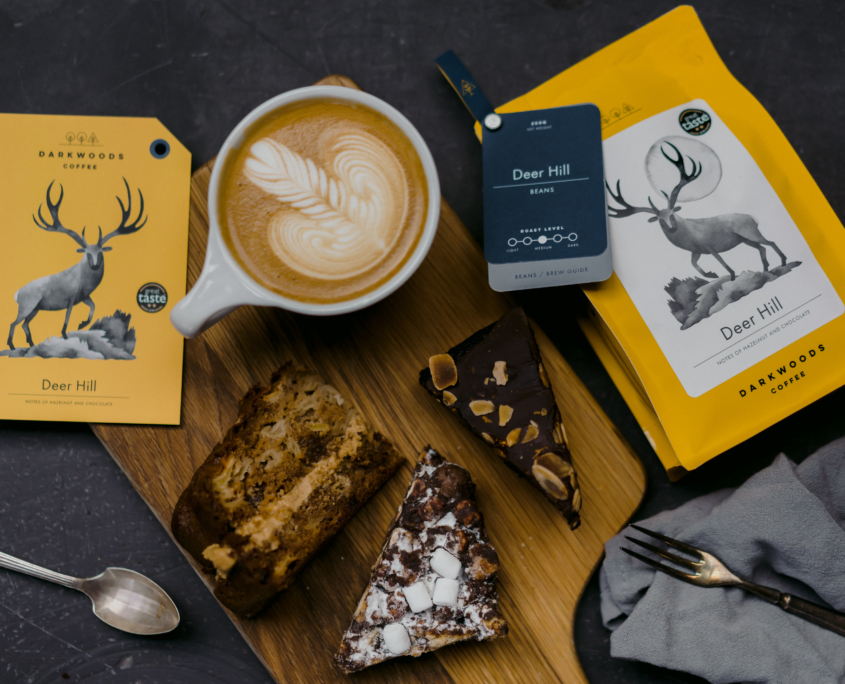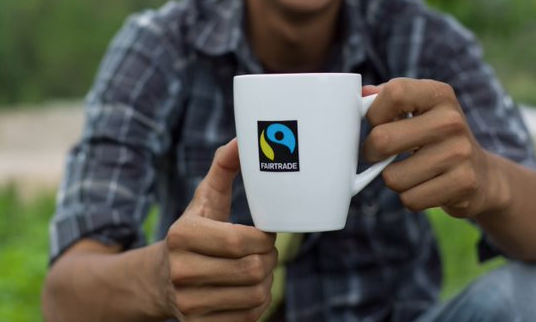Ever wondered where the coffee beans and tea leaves that go into your GFaL (Great Food at Leeds) drink come from? Well, it’s closer than you think! Every cup of tea and coffee served in our cafes is either Fairtrade or ethically sourced using local suppliers from Yorkshire. We serve over 500 thousand cups of tea and coffee a year, so it’s important that we use the best quality ingredients and support local, sustainable suppliers.
Coffee
Darkwoods
Served: Affine, Loma, Loma Express, The Edit Room
Roasted in: Marsdon, West Yorkshire
Darkwoods.co.uk

Nestled away in the West Yorkshire Pennines, just 25 miles away from campus is Darkwoods coffee merchants, who are one of the first coffee roasters in the UK to be BCorp certified.
Dark Woods use specialty grade coffees, which have cleaner more distinctive flavours and are traceable to skilled farmers and their farms across the world.
Ian Agnew, Director of dark Woods, is also the director of the Lorna Young Foundation, a small charity that works with farmers in developing countries to help them get more value from what they grow. It was with this foundation that his involvement with coffee began when he helped to set up the Oromo Coffee Company, the world’s first refugee-owned social enterprise coffee company.
Bewleys: Coffee Eros
Served: Refectory, Hugo, Café 7, Café Maia, Baines Wing Café, Delivered catering
Roasted: Meltham, West Yorkshire
bewleys.co.uk

Established in 1840, Bewley’s source a large range of triple-certified, 100% Arabica, and Fairtrade coffees. Our cafes only use Bewley’s Fairtrade coffees which are sustainably sourced and roasted in nearby Meltham, West Yorkshire.
Bewley’s grower partner relationships go back years and they visit many of the growers they buy from regularly. As a business, Bewley’s are committed to reducing their environmental impact and actively work on the sustainability of coffee cups, alternative packaging and offsetting carbon emissions.
Tea
Canton Teas
Served: Affine, Loma, Loma Express, The Edit Room
cantontea.com/

Canton work hard to make the finest teas available at the fairest prices. Most of their teas are beyond organic, some are biodynamic – and several are from abandoned tea farms where the plants now grow wild. Others are from ancient tea trees in the forests of Yunnan and Vietnam.
Bewleys: Eros Tea
Served: Refectory, Hugo, Café 7, Café Maia, Baines Wing, Delivered catering
bewleys.co.uk
Bewley’s carefully sources the finest teas based on leaf appearance and infusion qualities such as flavour, colour, strength and briskness. All Eros tea is Fairtrade and organic where possible.
Get involved!
Join the ‘Choose the World You Want’ online festival with your friends and family.
Follow Great food at Leeds on social media for all the latest posts around Fairtrade Fortnight
#Fairtradefortnight
#Choosetheworldyouwant




